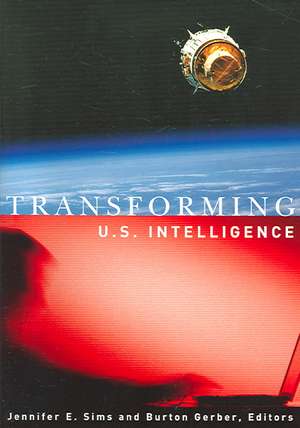Transforming U.S. Intelligence
en Limba Engleză Paperback – 30 aug 2005
Preț: 280.98 lei
Nou
Puncte Express: 421
Preț estimativ în valută:
53.77€ • 57.49$ • 44.83£
53.77€ • 57.49$ • 44.83£
Carte tipărită la comandă
Livrare economică 18 aprilie-02 mai
Preluare comenzi: 021 569.72.76
Specificații
ISBN-13: 9781589010697
ISBN-10: 1589010698
Pagini: 285
Dimensiuni: 177 x 252 x 20 mm
Greutate: 0.54 kg
Editura: Georgetown University Press
Locul publicării:United States
ISBN-10: 1589010698
Pagini: 285
Dimensiuni: 177 x 252 x 20 mm
Greutate: 0.54 kg
Editura: Georgetown University Press
Locul publicării:United States
Descriere
The intelligence failures exposed by the events of 9/11 has made one thing perfectly clear: change is needed in how the US intelligence community operates. This title argues that transforming intelligence requires as much a look to the future as to the past and a focus more on the art and practice of intelligence.
